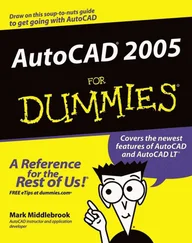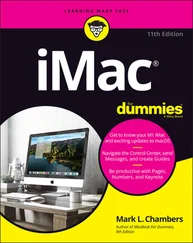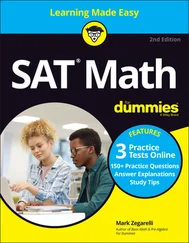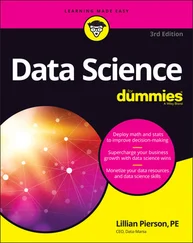Studying politics isn’t easy. Many factors shape it — individuals, such as leaders of political parties and countries; international organizations, such as the United Nations; domestic factors, such as political cultures and public opinion; and even disasters, such as the COVID-19 outbreak. Albert Einstein put it best almost a century ago when asked why men could discover the structure of the atom but were unable to keep it from destroying the world, stating: “This is simple, my friend; it is because politics is more difficult than physics.”
This book is intended as an introduction to the study of politics and political science. I assume no prior knowledge of the political process or the discipline of political science. While writing this book, I’ve strived to be nonpartisan, meaning that I didn’t write with any type of political ideology in mind. I also didn’t attempt to push certain political ideas and concepts while ignoring others.
One of the purposes of this book is for readers to come to their own conclusions and become more informed citizens and participate in not just debates on politics but in the political process. With politics being the process of making decisions for the public, it affects us all. Therefore, citizens need to be educated on the issues of the day and must be willing to participate in politics.
Whenever the text discusses certain concepts, such as federalism, I provide not only a definition of the term but also real-life examples of the concept. I show how it’s being applied in countries and how it works. I draw many examples from democracies, mostly located in Europe, but I also focus on the rest of the world, especially in the section on international organizations, globalization, and warfare.
I designed this book to provide a solid foundation on the discipline of political science. It will prove to be helpful whether you’re studying political science, writing a paper, or reading to expand your knowledge. I tried to make the book entertaining by including little-known tidbits on many topics. So whether you’re a political science student or just someone interested in the discipline, this book is for you. My hope is that this book will prove one point: Politics matters, and everyone needs to get involved in it.
Conventions Used in This Book
The information in some chapters is relevant to more than just that chapter. When this is the case, I include cross-references to these chapters by chapter number. For example, I discuss the U.S. Constitution in Chapter 5. However, I also analyze specific constitutional powers of the American legislature and executive in Chapter 6.
As you read and enjoy this book, you’ll see two different icons that alert you to specific aspects related to political science, its subfields, and major writers and their works.
 This icon points out important information you should be aware of as you read the section, the chapter, or the book. This icon covers only the most important events, people, and issues.
This icon points out important information you should be aware of as you read the section, the chapter, or the book. This icon covers only the most important events, people, and issues.
 Historical information often case-specific, including treaties, important battles, strategic doctrines, and other relevant material or events have this icon beside them. This information isn’t necessary for grasping certain concepts but is required for a political scientist in the making.
Historical information often case-specific, including treaties, important battles, strategic doctrines, and other relevant material or events have this icon beside them. This information isn’t necessary for grasping certain concepts but is required for a political scientist in the making.
In addition to what you’re reading right now, this book comes with a free access-anywhere Cheat Sheet that includes a list of political scientists and their major works as well as a handy bank of major political science concepts. To get this Cheat Sheet, simply go to www.dummies.com and type “Political Science For Dummies Cheat Sheet” in the Search box.
Feel free to start with any chapter in the book that interests you. Keep in mind that all the chapters are nonlinear, so you can start with any topic in any chapter. Happy reading!
Part 1
Understanding Political Science
IN THIS PART …
Discover what politics is all about and why it’s relevant to every person alive and thus needs to be studied.
Find out how political science developed from being very descriptive and nonexplanatory to a discipline that today tests propositions and creates theories to try to explain global behavior and conflict.
Explore how political culture determines how people act politically in their countries. Plus, find out how the process of political socialization of people, referring to how people receive their political values, determines how they behave politically.
Chapter 1
Discovering the Discipline of Political Science
IN THIS CHAPTER
 Understanding what politics and political science entail
Understanding what politics and political science entail
 Finding out about political power
Finding out about political power
 Looking into sources of legitimacy
Looking into sources of legitimacy
Political science is the study of politics and more precisely power. Politics is the process by how government decisions are made. It involves some members of society making decisions for all of society because they hold political power over others. Politics, in turn, determines who gets what, where, when, and how. For this reason, politics is an ongoing competition between individuals, groups, or even nation-states. In the United States, politics can involve two interest groups competing for benefits from the government. At the international level, politics could be a competition for natural resources, such as oil, or new powerful allies.
A political scientist is interested in who holds political power in a society, what type of political institutions (forms of government) are best suited to bring about the least amount of conflict, and what form of government is best for its citizens. To be more precise, political scientists are interested in who gets elected to office, how elections are won, how policy is made, how leaders maintain themselves in power, and the all-important question, why does war occur and could it be prevented?
This chapter looks at the study of politics and political science, including the beginnings of political science.
Looking at Politics and Political Science
Many believe that political science is a way of training for future politicians. Although taking a political science class can be helpful if you want to venture into politics, this isn’t what political science is all about. Political science is a method or a way to study politics.
 Political science is an academic discipline that studies the relationship between people and political institutions. A discipline is a field of study usually represented by an academic department at a college or university. Political science is a discipline, and so are history, sociology, and biology.
Political science is an academic discipline that studies the relationship between people and political institutions. A discipline is a field of study usually represented by an academic department at a college or university. Political science is a discipline, and so are history, sociology, and biology.
Читать дальше
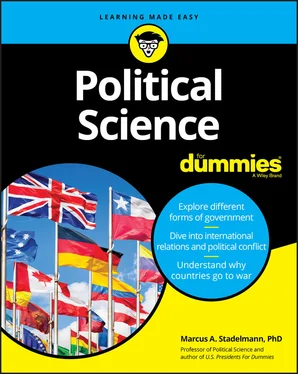
 This icon points out important information you should be aware of as you read the section, the chapter, or the book. This icon covers only the most important events, people, and issues.
This icon points out important information you should be aware of as you read the section, the chapter, or the book. This icon covers only the most important events, people, and issues. Historical information often case-specific, including treaties, important battles, strategic doctrines, and other relevant material or events have this icon beside them. This information isn’t necessary for grasping certain concepts but is required for a political scientist in the making.
Historical information often case-specific, including treaties, important battles, strategic doctrines, and other relevant material or events have this icon beside them. This information isn’t necessary for grasping certain concepts but is required for a political scientist in the making. Understanding what politics and political science entail
Understanding what politics and political science entail